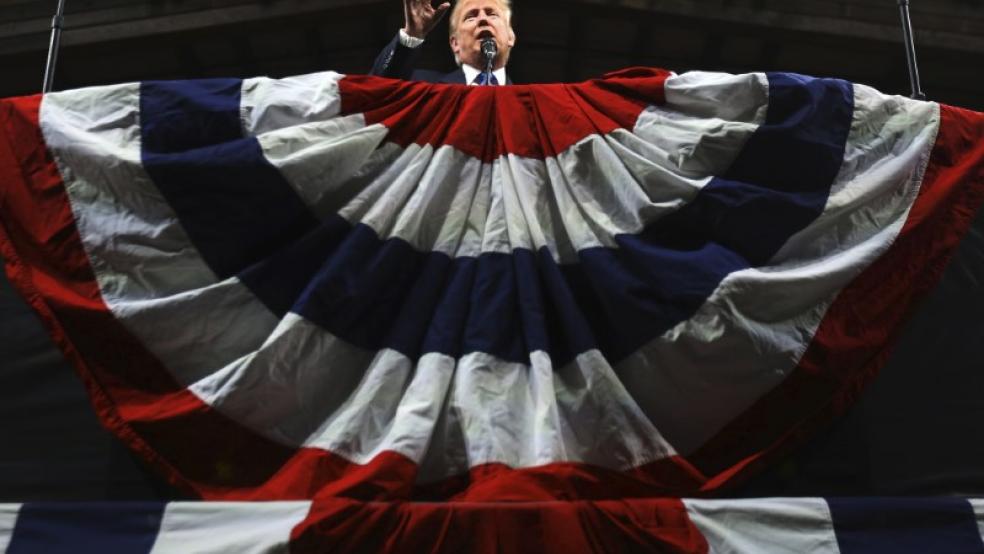Donald Trump is right. He did electrify the electorate in the Republican primaries. And the numbers prove it.
In the 2012 GOP primaries, which former Massachusetts Governor Mitt Romney won, a total of 21.5 million votes were cast. In the 2008 primaries, which put Arizona Senator John McCain at the top of the Republican presidential ticket, 22.8 million people cast primary ballots, according to Real Clear Politics.
Related: Trump Tries to Behave but Needs Another Time-Out
But this year, about 7 million more Americans voted in the GOP primaries than in 2012, for a total of 28.5 million. Of those, 13.3 million votes were for Trump.
True, Romney won by 5.9 million votes in 2012, and Trump beat his closest competitor by about 5.6 million. But the Republicans started the 2016 primary season with 17 contenders, including well-known and well-funded candidates like former Florida Governor Jeb Bush and dogged, organized competitors such as Texas Senator Ted Cruz, who with 7.6 million votes came closest to challenging Trump. By contrast, Romney was up against a much less compelling field: former Pennsylvania Senator Rick Santorum, former House Speaker Newt Gingrich and former Texas Representative Ron Paul.
On the Democratic side, the popular vote in the primaries tells a different story and calls into question all the hoopla about the candidacy of Vermont Senator Bernie Sanders.
More than 27.4 million people cast Democratic primary ballots in 2016, far fewer than the 35 million in 2008, the last time there was a serious race for the nomination. And former Secretary of State Hillary Clinton won a decisive popular-vote victory over Sanders: She bested him by almost 3.7 million votes.
There is little question that the viral popularity of Sanders, a 74-year-old democratic socialist, was the second biggest surprise of the 2016 primary season after the Trump juggernaut. However, there was arguably much more passion and intensity in the 2008 Democratic race, and the numbers bear that out: Obama beat Clinton in the popular primary vote by a mere 41,662 ballots – an 0.1 percent margin of victory.
Related: Sanders Won’t Give Up His Fight Despite Clinton’s Clear Victory
At the end of this mind-spinning run-up to November, though, does the popular vote foretell what will happen in the general election? According to the New York Times columnist David Brooks and data websites FiveThirtyEight and polifact.com, there is no correlation between the primary numbers and the outcome of the general election.
But while that may be historically true, this is a year in which the pundits, polls and prognosticators have been repeatedly wrong. It is a year in which for the first time in history a woman will be a major political party’s candidate for the presidency of the United States. And it is a year in which perhaps the most outrageously self-absorbed and politically incorrect candidate in anyone’s memory has captured the attention of the country.





